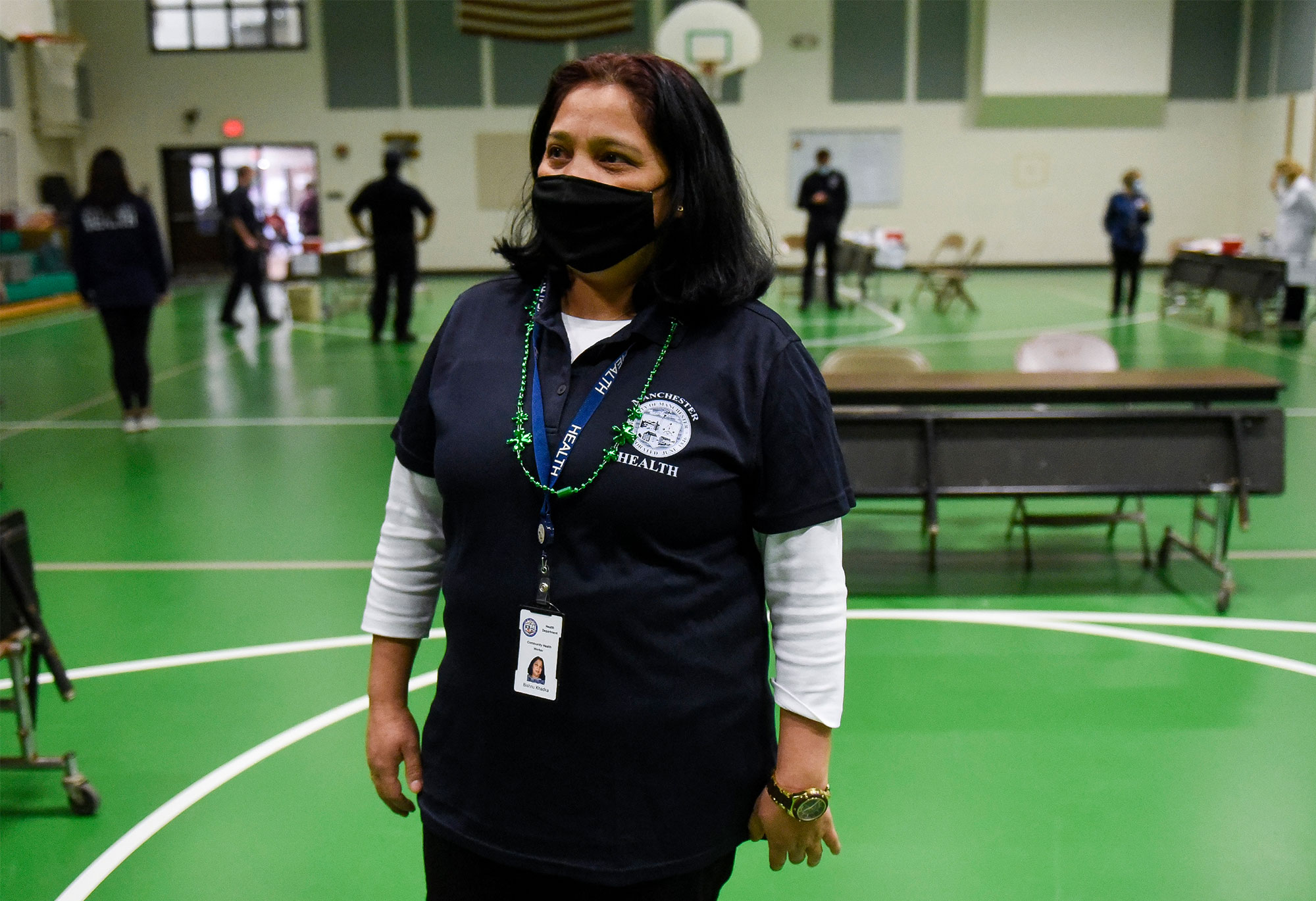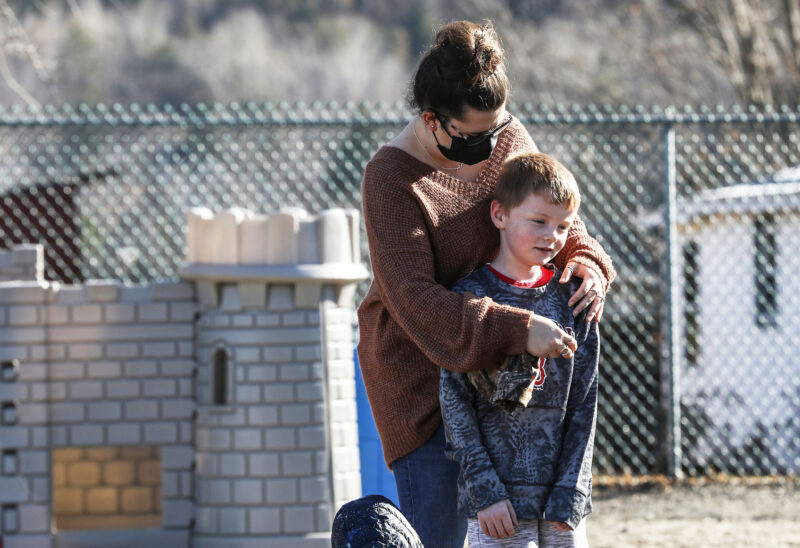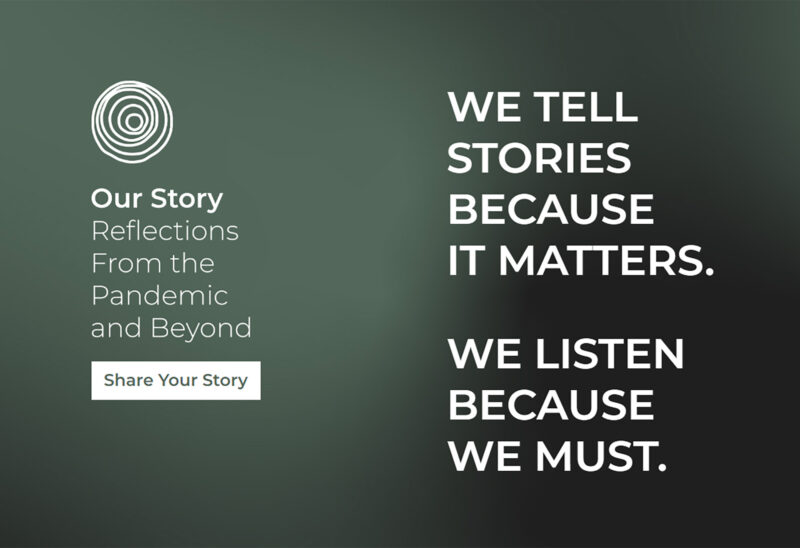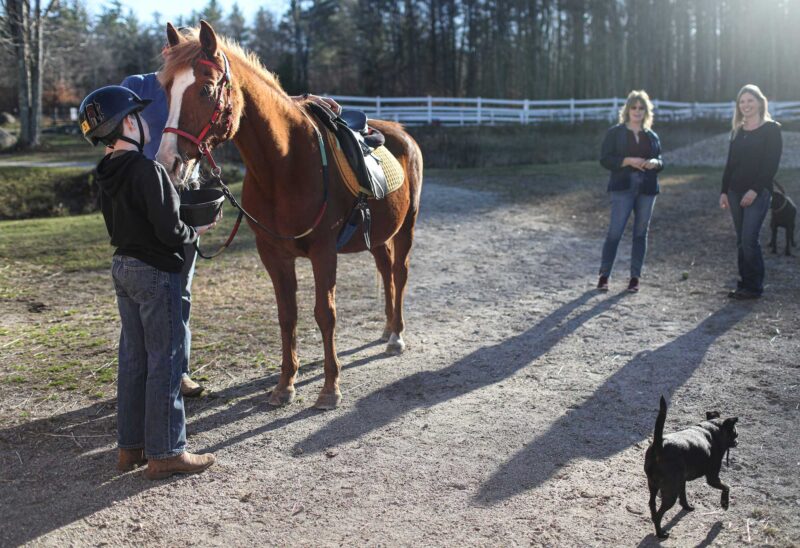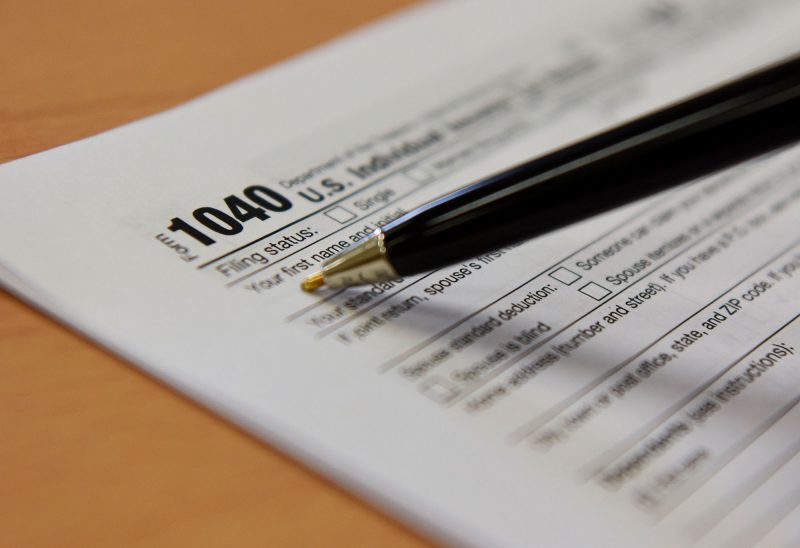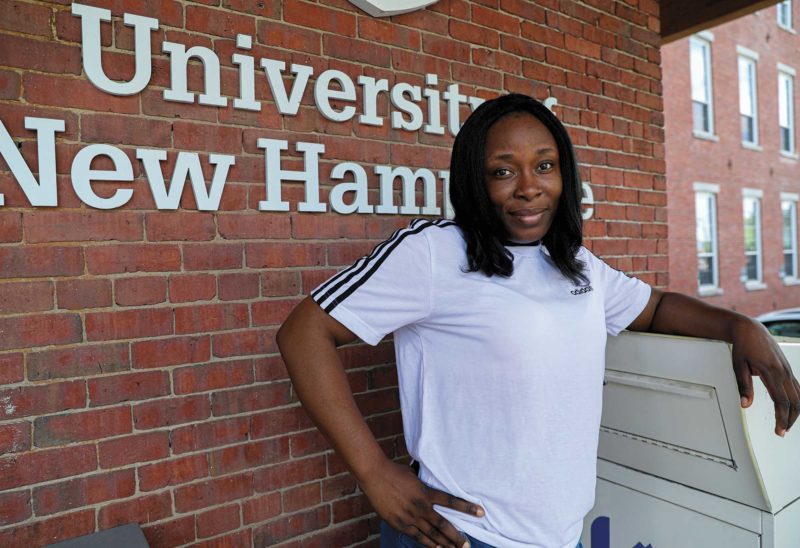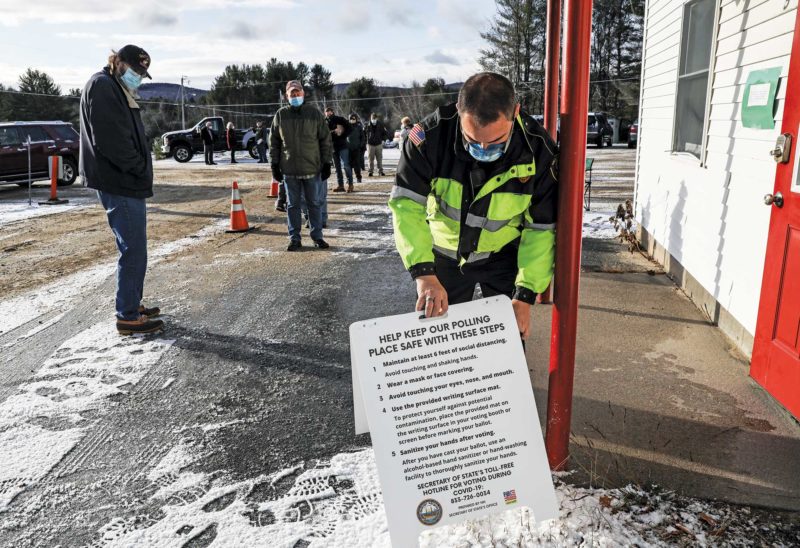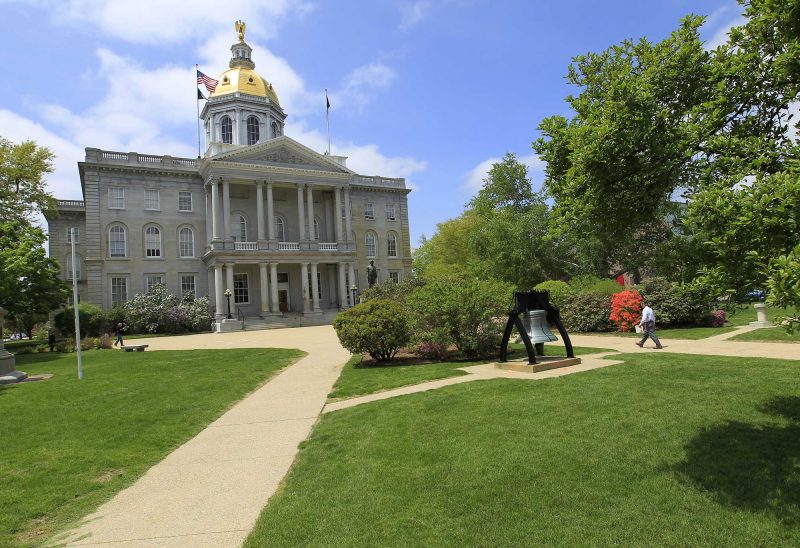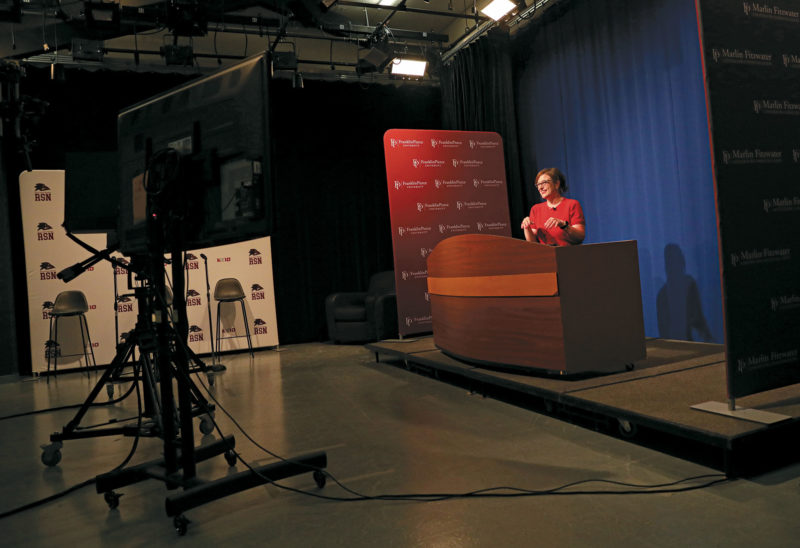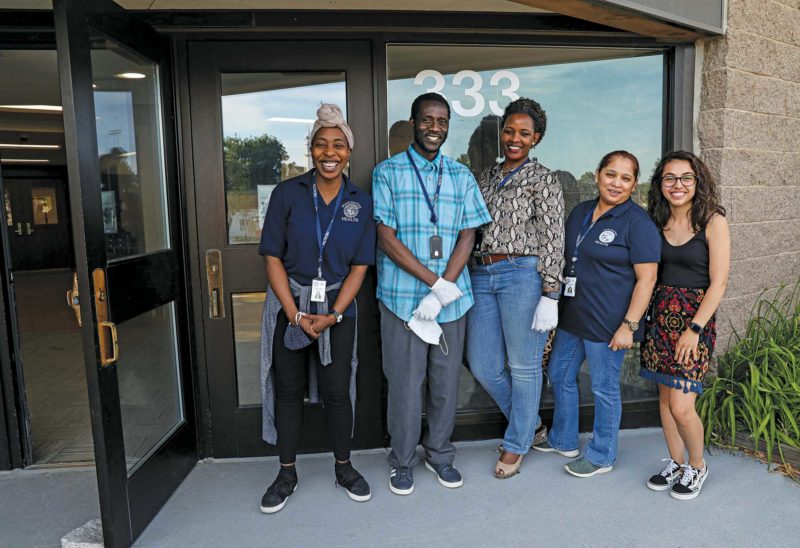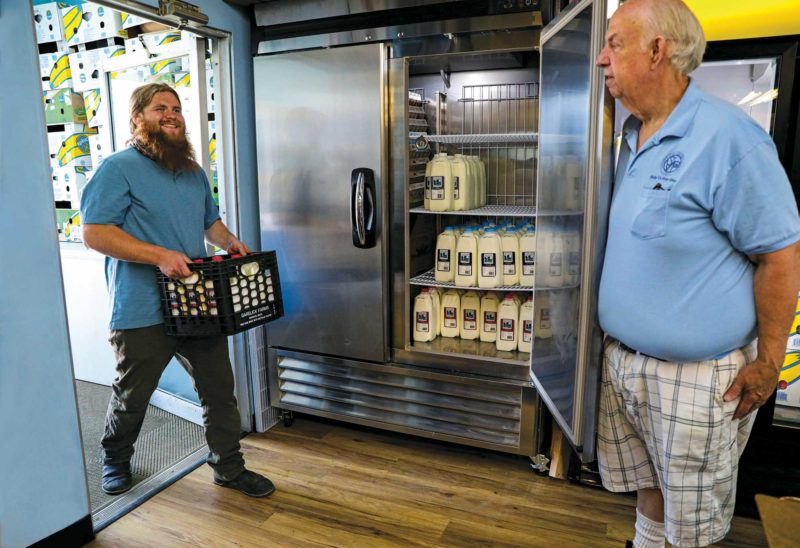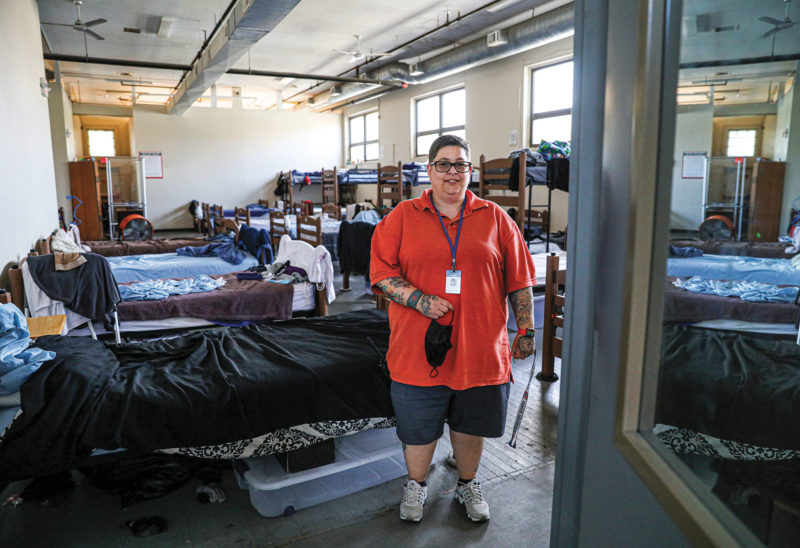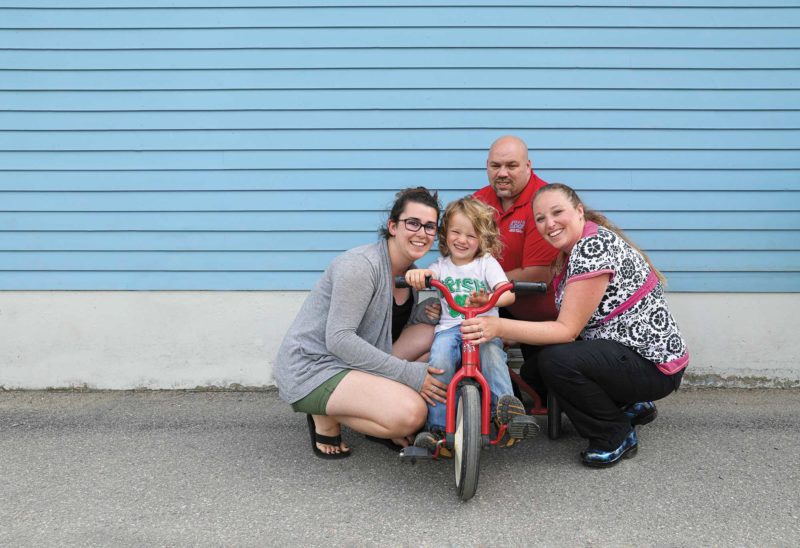In Manchester, four new community health workers will soon be in action, helping that city’s Health Department reach out to and better serve communities disproportionately affected by the COVID-19 pandemic.
“They will work on all facets of our COVID response — including testing, contact tracing, outreach to specific communities around vaccines and connectivity to medical and other services,” said Jaime Hoebeke, Chief Strategy Officer for Manchester Health Department. The new health workers will speak a variety of languages, including Spanish, French and Nepali.
The positions were made possible with a combination of funds from the Charitable Foundation’s Community Crisis Action Fund and federal CARES Act dollars granted by the state.
“In order to ensure the best possible care for members of our community, we need to meet people where they are to decrease or eliminate barriers,” said Manchester Mayor Joyce Craig. “Manchester is one of the most diverse communities in the state, and it is critical that we provide equitable services to our residents. Through relationships and trust, four new community health workers will have a pivotal impact on the health and well-being of our city.”
In Manchester, as in the rest of the state, Black, indigenous and other people of color are at greater risk of contracting and dying from COVID — disproportional to their representation in the state’s population overall.
According to the COVID Tracking Project and the Boston University Center for Antiracist Research, through mid-January Hispanic/Latino people in New Hampshire were most likely to have contracted COVID, and Black/African-American people were most likely to have died from it. These data show that Hispanic/Latino people represent 7,308 cases per 100,000 people in the Granite State, while White people show 2,189 cases per 100,000. Black people account for 65 deaths per 100,000 people — the highest among any racial category.
Nationwide, the trend is similar: People from communities of color are three times more likely to be infected with the disease than Whites, and twice as likely to die.
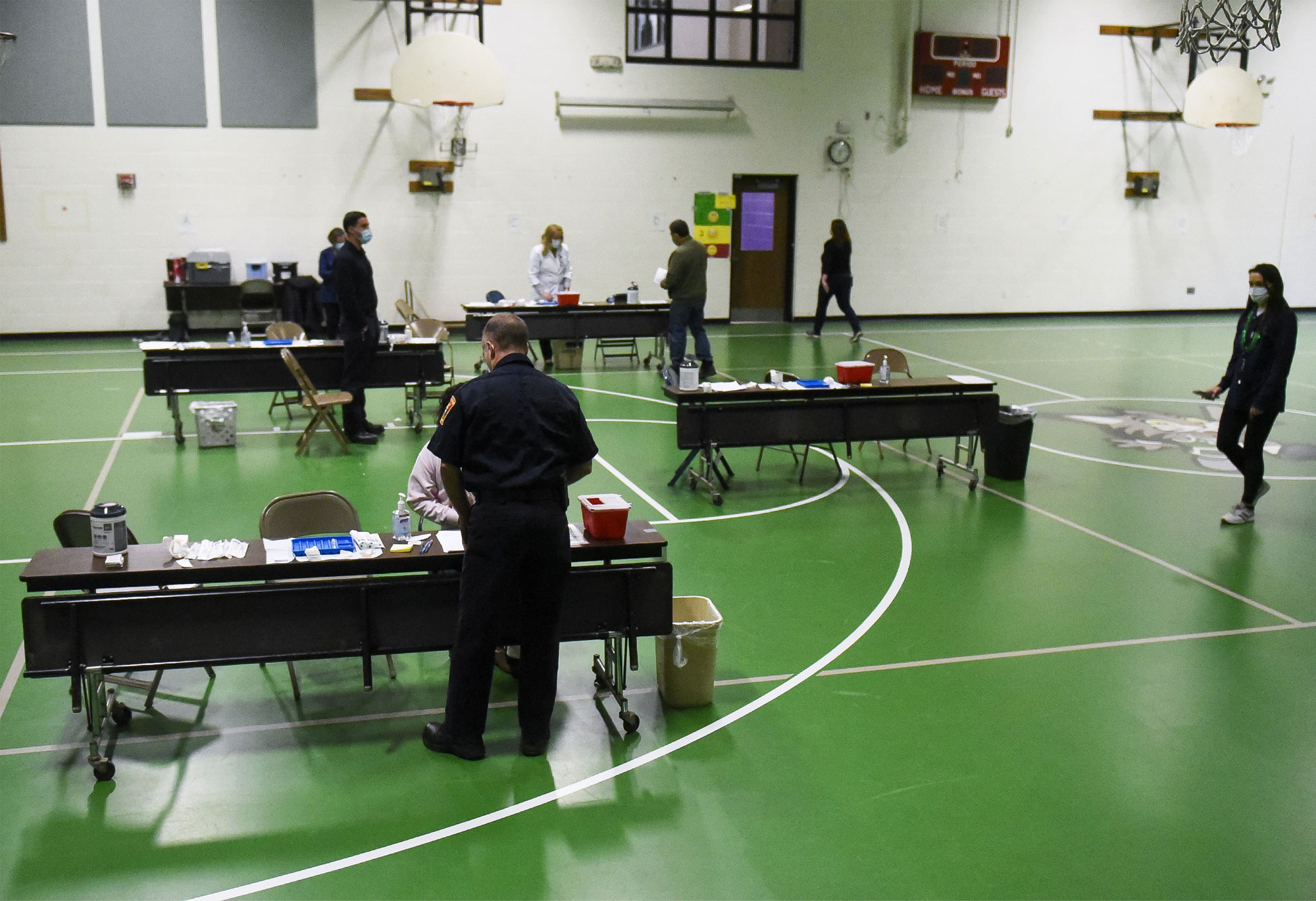
Health care workers use the gym for a vaccination clinic at Beech Street School in Manchester. (Photo by Thomas Roy, courtesy of Union Leader.)
According to an analysis of CDC data by researchers at the Brookings Institution, race gaps in death rates are even bigger than they appear. “Among those aged 45-54, for example, Black and Hispanic/Latino death rates are at least six times higher than for whites,” the Brookings report states.
The reasons are complex and multi-layered, including the fact that people from communities of color are more likely to be essential and frontline workers, many doing jobs put them at increased risk for illness while helping keep our communities running during times of crisis.
And disparities in health outcomes in other areas — resulting from an array of inequalities from poorer housing to health access — lead to even greater COVID risk for many.
“We know that there are barriers that exist to care,” Hoebeke said. “We need all perspectives as a part of this work to understand how we can get ahead of it.”
Manchester and Nashua have been particularly hard-hit during the pandemic. A similar grant was made in 2020 to deploy more community health workers in Nashua.
Community health workers will help address chronic conditions and health determinants to improve health outcomes moving forward.
“Moving forward, we really have to pay attention to chronic disease as a way to protect the population from emerging infectious disease. Common risk factors for infectious disease are often chronic conditions, such as diabetes,” Hoebeke said.
Hoebeke pointed out that these new positions mark the first time community health workers have been added as a designated job classification in Manchester — a change with the potential to shift the way public-health services are delivered moving forward.
The Department is also working in concert with local nonprofits as well as area churches to advertise COVID testing sites and vaccination clinics.
“I always make it a point that Community Health Workers are not just interpreters or translators,” Hoebeke said. “They are so much more. The language is just a tool in their toolbox. This will really help us get a stronger foothold in community and inform our work, and we are grateful to be able to bolster our workforce to meet the needs of all residents.”

